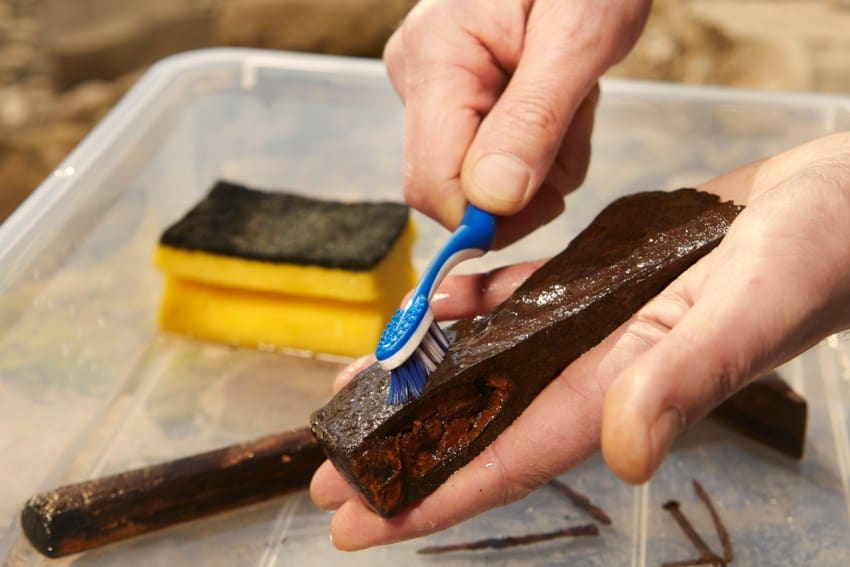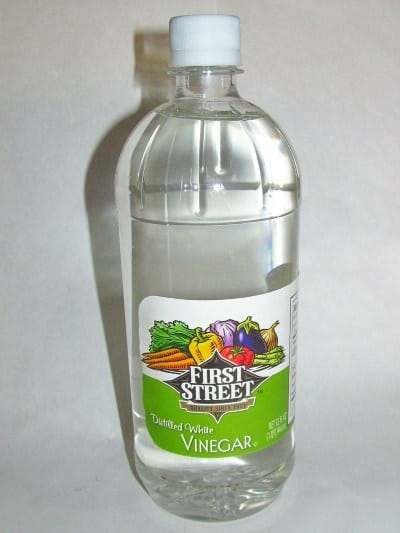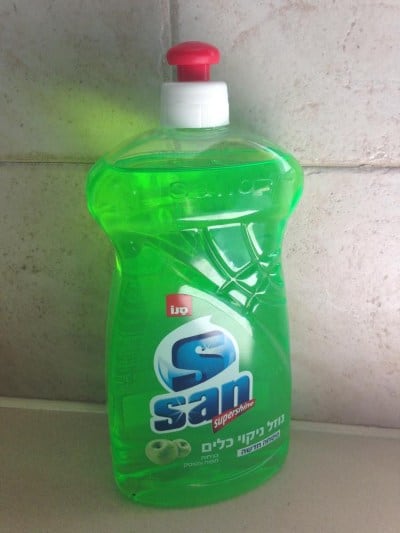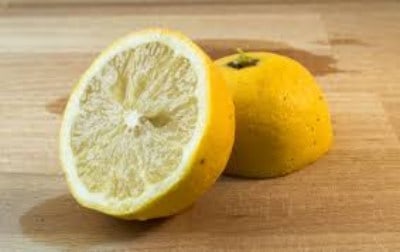
Magnet Fishing is not only about picking metallic find out of water! Yes, I understand that’s the fun part …
… Yet, the other part of the coins is cleaning those finds properly!
By doing so, you will make sure you will:
- Remove all the rust and preserve your finds.
- Recognize the most valuable finds.
- Have the opportunity to sell them is they are valuable enough.
In this Post, I am about to reveal 10 different cleaning methods that you should know about!
1. Oxalic Acid
Oxalic acid (Check it Here at Amazon) is not as common but still makes for a natural alternative to the other chemicals on this list. Although, oxalic acid is harsh itself. You’ll want to use gloves and goggles to handle this cleaner.
It’s an organic compound found in most plants that is a crystalline solid that turns to liquid once mixed with water.
It is an excellent rust remover and is found in most big box hardware stores. You will need to mix two tablespoons for every quart of hot water.
You’ll want hot water so the oxalic acid dissolves. Mix the solution in an open area with good air circulation.
Be extra careful with this solution since it can burn skin and is harmful if used in confined spaces with no fresh air. But it is definitely tough on rust.
| Pros | Cons |
| Tough on rust. | Can burn skin. |
| Easy to use. | Needs extra precaution to be handled. |
2. WD-40 Specialist Rust Remover Soak
This is one of the chemical options in this list! Don’t worry, none of these are harmful or dangerous unless used improperly.
WD-40 (Check it Here at Amazon) is one of those fix-all solutions. It is best known for being a lubricant and rust preventer.
The Specialist Remover Soak takes prevention to the next step, removal. This formula of WD-40 is designed for submerging items to remove layers and layers of rust.
It guarantees to remove rust without chipping, damaging, or wearing away your items. You can expect to soak items anywhere between 30 minutes to 8 hours. Once removed, you have to wipe away any residue. Being that this is a WD-40 product, you might have trouble fully wiping away all residue because of its known greasy properties. Fortunately, your items will be protected from rust after the cleaning.
| Pros | Cons |
| Works on tough layers of rust. | Greasy. |
| Fast and protects items. | May turn black if your items are heavily rusted. |
3. Unrust Rust Remover
Here’s another chemical remover that is easy to use. Unrust Rust Remover (Check it Here at Amazon) is a dry powder you mix with warm water…
…Fortunately, the small individual packets make two to four gallons of solution. This will be a sufficient amount for your finds.
For best results, let your items soak 24 hours. As with most of the methods on this list, 24-hours looks to be the right amount of time to get most of the rust off your finds. Light rust will definitely need the least amount of soak time. But, you may still have to put in the elbow grease.
After soaking your items, rinse them off with warm water. Wipe dry with a cloth and if needed, soak again.
| Pros | Cons |
| Makes large amounts for soaking. | Best results come after 24 hours. |
| Is tough on rust. | Is best on light rust. |
4. Boeshield Rust Free
Boeshield Rust Free (Check it Here at Amazon) is a very good cleaning option for your magnet fishing finds. This product is a spray on solution for rust…
…Fortunately, the wait time is short. You can expect to wait anywhere between 20 minutes to an hour.
Rinse and dry your item before applying the solution. Next, after spraying on the solution and waiting for it to absorb you’ll take an abrasive pad to scrub away rust. Continue to spray solution and wait 20 minutes then scrub till rust is removed.
Repeat this process as many times as needed. Only use the spray on small items, if not you’ll spend an eternity trying to remove large amounts.
| Pros | Cons |
| Easy to use spray on application. | Only good for small jobs. |
| Won’t damage your items. | Not strong enough to remove all rust. |
5. Sandpaper
If you want the job done fast and dirty, then turn to sandpaper (Check it Here at Amazon)!
The latter will remove rust from your finds fast. There is one negative to this though, and that’s scratches. Lots of them. You can use coarse grits to remove major amounts of rust at first. After most of the rust has been removed, then you can switch to finer grits.
Either way you are going to leave scratches on your finds. Most impurities can be buffed out by taking your time and switching grits accordingly.
Also, you’ll want to rinse and dry off your metals frequently. If not, then what you rub off will become grit further damaging your find.
This method will require you put in some work. But if all you have on hand is sandpaper, it can get most rust off in a pinch. It’s not the best choice, more of a last measure.
| Pros | Cons |
| Works great for removing large amounts of rust. | Too abrasive. |
| Helps remove impurities. | Tons of work to get results. |
6. White Vinegar

Now, let’s move on to natural rust removers available like white vinegar!
Apple vinegar can also work as well. Vinegar has been a natural household cleaner for years and it’s simply because it works.
The high acid content of both citric and acetic acid help remove rust from metal. You’ll want to soak your finds in vinegar for a minimum of 24 hours in order to remove any rust.
Once removed from the vinegar, take a cloth to wipe away any residue and dry off.
However, vinegar is one of the least powerful cleaners on this list which means you’ll only remove surface rust. If rust is still visible, soak for another 24 hours.
One other major con of using vinegar is the smell. Some might find it really off putting and will want to avoid the strong odor.
| Pros | Cons |
| Inexpensive, and can typically be found around the house. | Only removes surface rust. |
| All natural. | Strong odor. |
7. Dish Soap

The tried and true dish soap is an excellent choice for cleaning your finds. Dish soap works wonderfully as a degreaser and helps remove surface dirt.
It’s best to have a tough scrubber to really work the dish soap into the caked on dirt. A wire brush will help get most of the dirt and grime off.
Mix small amounts of dish soap in a bucket with warm or cold water. Soak your finds for a few minutes in the solution. Remove the items and hold over the water’s surface as you scrub away dirt and rust.
Similar to the vinegar, dish soap is best used for removing surface rust. It is gentle on your hands and is safe to use for long use. Unlike harsh chemicals, you can be sure you’ll be safe using dish soap.
Also, it’s best to clean your items outside because one drawback about using dish soap is all the bubbles that form. It can get messy quickly.
| Pros | Cons |
| Safe to use. | Messy. |
| Gentle on skin. | Does not remove a lot of rust. |
8. Baking Soda

Baking soda is an active ingredient in a lot of household cleaners. It’s inexpensive, and is extremely common.
The cleaning power of baking soda is in its grittiness. You’ll want to make a thick paste out of baking soda with small amounts of water mixed in a bowl. Put a tablespoon of baking soda in a bowl and add enough water to make a paste.
If you add too much water and make it runny all you have to do is add more baking soda. You want to have a thick paste to put on the rusted areas.
Apply the thick paste directly on rusted areas and wait two to three hours for the solution to settle. Then, take an old toothbrush and scrub away the paste.
The paste will be abrasive but also gentle enough not to damage your finds. This process may need to be repeated a few times.
| Pros | Cons |
| Works well on surface rust. | Not strong enough for heavy rust. |
| Common item to find. |
9. Citric Acid

Citric acid is a common household cleaner that is added to most rust removers.
The citric acid breaks down rust and can remove stubborn rust from most of your finds. You’ll want to add one cup of pure citric acid to a bucket of water so you can soak your items in the solution.
The wait time is relatively quick, only an hour or two. From there, you will use a cloth or toothbrush to wipe away any rust. The citric acid will form bubbles as you work the solution into the affected areas.
For tougher rust spots, soak an additional hour or two. Then repeat the process over till it’s gone.
You’ll get the best results by letting the metal soak longer. Typically letting the citric acid soak longer into the rust will help with removal. It depends on how severe the rust is.
| Pros | Cons |
| Safe on hands. | Not as strong as others listed. |
| Works fast on surface rust. | You might need to use a lot for tough jobs. |
10. Coke

This method is peculiar. Who would’ve thought you could use Coke to remove rust? Well, you can because of the acidity of this drink (that I personally consider to be unhealthy)
If you let your items sit long enough submerged in Coke , then rust will begin to dissolve away.
You’ll want to submerge your items for a minimum of 24 hours, which makes this one of the slower methods on this list. Coca Cola has a low level of phosphoric acid. It’s enough to remove rust, it just takes a long time to do it.
After soaking your items in Coke, or any other dark soda, you’ll want to use a piece of aluminum foil to rub away any rust. You may need more than one soak to get off the rust. In fact, this is another last resort option.
| Pros | Cons |
| Won’t damage your items. | Too slow. |
| Is great for small areas. | You’ll have to repeat multiple times. |
Conclusion
I’ve tried here to include different types of cleaning methods for your fishing magnet finds! Some of them are chemical, others are natural … Some of them are very cheap, others would cost a bit more … Some of them are very strong, others are softer!
Obviously, I did this on purpose so you will manage to pick the cleaning method that will suit you the most, depending on the magnet finds you are used to come up with.
Hope that was Useful!





